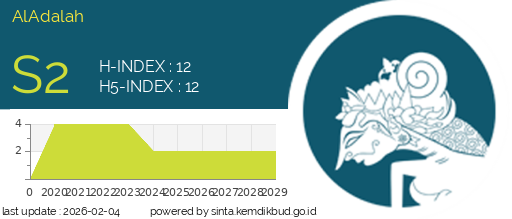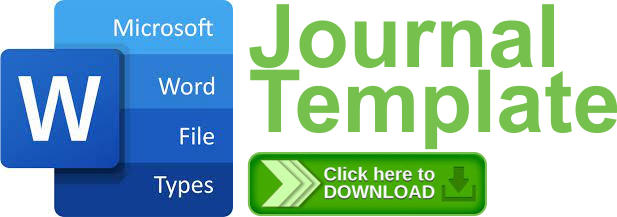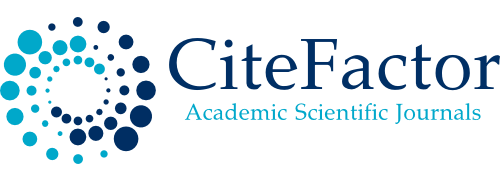Navigating the Challenges of Technological Advancement: Iqbal’s Philosophical Insights on Moderation and Humanity in the Digital Age
DOI:
https://doi.org/10.35719/aladalah.v27i1.394This study delves into the philosophical insights of Muhammad Iqbal regarding the interaction between humanity, moderation, and technology in the digital age. Iqbal’s concept of khudi (selfhood) and his ethical framework provide a valuable lens for exploring contemporary challenges related to digital identity formation, the ethical implications of artificial intelligence, and technology integration into modern society. Using a qualitative research approach, this study employs textual analysis of Iqbal’s original writings and contemporary interpretations to address how his philosophy can inform ethical digital practices. Through thematic analysis and philosophical hermeneutics, the research reveals three primary insights: the transformative nature of technology on self-awareness, the ethical dilemmas arising from technological advancements, and the necessity of balancing technology with human values such as moderation and equality. The findings underscore the relevance of Iqbal’s thoughts in guiding individuals and societies toward responsible and ethical digital interactions. Ultimately, this research contributes to the growing discourse on digital ethics by offering a comprehensive framework grounded in Iqbal’s enduring philosophical principles. Future research prospects are proposed to integrate Iqbal’s teachings into practical applications for promoting digital moderation, equity, and ethical responsibility.
Downloads
References
Abdullah, S., & Iqbal, M. (2023). The role of technology in fostering justice. Journal of Islamic Studies.
Al-Attas, S. M. N. (1993). Islam and secularism. International Institute of Islamic Thought and Civilization (ISTAC).
Ali, N., Bibi, N., Shah, M., Bukhari, S. A., Fatima, S., Mehmood, S., Sohail, M., & Shabab, M. U. (2023). Iqbal: A poet of humanity. PalArch’s Journal of Archaeology of Egypt/Egyptology, 20(1), 298–304. https://doi.org/10.48080/pae.v20i1.2661
Ansari, M. T. K. (1996). Iqbal's concept of God: A philosophical and psychological analysis. Adam Publishers & Distributors.
Arif, S. (2011). An alternative perspective on Asian identity. Islamic Perspective Journal, 2011(5), 126–147.
Ashok, M., Madan, R., Joha, A., & Sivarajah, U. (2022). Ethical framework for artificial intelligence and digital technologies. International Journal of Information Management, 62, Article 102433. https://doi.org/10.1016/j.ijinfomgt.2021.102433
Bach, A. J., Wolfson, T., & Crowell, J. K. (2018). Poverty, literacy, and social transformation: An interdisciplinary exploration of the digital divide. Journal of Media Literacy Education, 10(1), 22–41. https://doi.org/10.23860/jmle-10-1-3
Blühdorn, I. (2013). The governance of unsustainability: Ecology and democracy after the post-democratic turn. Environmental Politics, 22(1), 16–36. https://doi.org/10.1080/09644016.2013.755005
Buhaychuk, O., Nikitenko, V., Voronkova, V., Andriukaitiene, R., & Malysh, M. (2022). Interaction of the digital person and society in the context of the philosophy of politics. Cuestiones Políticas, 40(72). https://doi.org/10.33776/cp.v40n72.4827
Butt, H. D., & Aijaz, U. (2023). Iqbal philosophies and the factors to meet the challenges and future of work. Bahria Research Journal on Iqbal Studies (BRJIS), 2(2), 11–27. https://brjis.bahria.edu.pk/index.php/ojs/article/view/42
Faneye, A. (2014). Technology and identity in the modern world. International Journal of Humanities and Social Science Research, 4(2), 56-64.
Faulkner, R. (2021). Ethics and technology: Navigating the digital landscape. Journal of Technology and Society, 15(3), 245-259. https://doi.org/10.1016/j.jts.2021.07.001
Gray, S. M. (1988). Charles A. Lindbergh and the American dilemma: The conflict of technology and human values. Popular Press. https://doi.org/10.1353/pop.1988.0006
Hassan, G. S., & Buaben, J. M. (2015). Hassan al-Turabi’s religious discourse on faith, renewal, and ijtihād. American Journal of Islam and Society, 32(1), 75–94. https://doi.org/10.35632/ajis.v32i1.735
Hillier, C. (2015). Muhammad Iqbal: Essays on the reconstruction of modern Muslim thought. Edinburgh University Press. https://doi.org/10.3366/edinburgh/9780748699538.001.0001
Hussain, K. (2019). Islam as critique: Sayyid Ahmad Khan and the challenge of modernity. Bloomsbury Publishing.
Hussain, R. (2019). The philosophical, political and economic thought of Dr. Muhammad Iqbal: A brief reappraisal. Islamic Political Thought, 6(2), 69–93. https://doi.org/10.12816/0051227
Iqbal, M. (1930a). The reconstruction of religious thought in Islam. Oxford University Press.
Iqbal, M. (1996b). Iqbal's concept of God: A philosophical and psychological analysis. Adam Publishers & Distributors.
Iqbal, M. (2013c). The secrets of the self (A. J. Arberry, Trans.). Kazi Publications.
Jaffer, I. (2018). Traditional Islamic ethics: The concept of spiritual virtue and its implications for contemporary human rights. https://yorkspace.library.yorku.ca/items/24cf4839-5cd2-44c0-96ca-3b539b9b97d6
Jamil, S., & Appiah-Adjei, G. (2023). “Let’s draw a line between dos and don’ts”: Pakistani journalists’ perspectives about the ethics of conflict-sensitive reporting. Journalism and Media, 4(1), 177–196. https://doi.org/10.3390/journalism4010010
Jones, J. (2014). Shi‘ism, humanity and revolution in twentieth-century India: Selfhood and politics in the Husainology of ‘Ali Naqi Naqvi. Journal of the Royal Asiatic Society, 24(3), 415–434. https://doi.org/10.1017/S1356186314000175
Kawangung, Y. (2019). Religious moderation discourse in plurality of social harmony in Indonesia. International Journal of Social Sciences and Humanities, 3(1), 160–170. https://doi.org/10.29332/ijssh.v3n1.301
Khan, M., & Koshul, A. (2011). The ethical dimensions of technology in Islamic thought. Journal of Islamic Philosophy, 7, 45–58.
Lodi, Y. (1995). Martin Buber and Muhammad Iqbal: A study in the modernizing mind. Purdue University. https://search.proquest.com/openview/f4e06a9acaa79e8ea7beac72b22f9429/1?pq-origsite=gscholar&cbl=18750&diss=y
Majeed, J. (2020). Muhammad Iqbal: Islam, aesthetics and postcolonialism. Taylor & Francis. https://doi.org/10.4324/9781003050357
Malik, F. (1971). Iqbal's philosophy: An evaluation. Vanguard Books.
Mokyr, J. (2010). The contribution of economic history to the study of innovation and technical change: 1750–1914. In Handbook of the economics of innovation (pp. 11–50). Vol. 1. Elsevier.
Murad, A., Fatima, S., Ali, M. A., & Anwar, S. (2021). Iqbal’s philosophy of khudi: Maintenance and development through experiential learning in early childhood education. Habibia Islamicus (The International Journal of Arabic and Islamic Research), 5(2), 1–13. https://doi.org/10.18860/hij.v5i2.9206
Nasr, S. H. (2006). Islam and the plight of modern man. Islamic Texts Society.
Nix, D. E. (2015). Muhammad Iqbal: Restoring Muslim dignity through poetry, philosophy, and religious political action. In Essays on the reconstruction (pp. 201–234). Oxford University Press.
Odgers, C. L., & Jensen, M. R. (2020). Annual research review: Adolescent mental health in the digital age: Facts, fears, and future directions. Journal of Child Psychology and Psychiatry, 61(3), 336–348. https://doi.org/10.1111/jcpp.13190
Palacios, M. G. (2001). Ethics and technology: Controversies, questions, and strategies for ethical computing. Prentice Hall.
Palange, A. (2022). Islamic education and activism in theory and practice: The case of two online e-learning institutes [PhD thesis, University College London]. https://discovery.ucl.ac.uk/id/eprint/10148009/
Parvez, A. (2014). The ethical challenges of technology in the digital age: Iqbal's perspective. Journal of Islamic Studies and Culture, 2(1), 35–48. https://doi.org/10.15640/jisc.v2n1a4
Rahnema, A. (1994). Pioneers of Islamic revival. Palgrave Macmillan.
Roslan, F. A. B. M., & Ahmad, N. B. (2023). The rise of AI-powered voice assistants: Analyzing their transformative impact on modern customer service paradigms and consumer expectations. Quarterly Journal of Emerging Technologies and Innovations, 8(3), 33–64. https://doi.org/10.56439/qjeti.v8i3.523
Safi, O. (2017). Islam in the digital age: The ethics of digital behavior. Oxford University Press.
Todd, S. (2015). Toward an imperfect education: Facing humanity, rethinking cosmopolitanism. Routledge.
Umar, M. S. (2006). Iqbal and modern era. Lahore: Iqbal Academy Pakistan. http://www.iqbalcyberlibrary.net/files/015/388E.pdf
Ul-Haq, A. (2022). Artificial intelligence and ethical dilemmas in contemporary society. Journal of Ethics in Technology, 9(4), 300–315. https://doi.org/10.1016/j.jets.2022.03.006
Zhu, Y., Wen, R., & Williams, T. (2024). Robots for social justice (R4SJ): Toward a more equitable practice of human-robot interaction. Proceedings of the ACM/IEEE International Conference on Human-Robot Interaction (HRI). https://doi.org/10.1145/1234567.1234568
Downloads
Section
License
Copyright (c) 2024 Hero Gefthi Firnando

This work is licensed under a Creative Commons Attribution-NonCommercial 4.0 International License.
This work is licensed under a Attribution-NonCommercial 4.0 International (CC BY-NC 4.0).

























 Al'Adalah licensed under Creative Commons Attribution-NonCommercial 4.0 International License.
Al'Adalah licensed under Creative Commons Attribution-NonCommercial 4.0 International License.